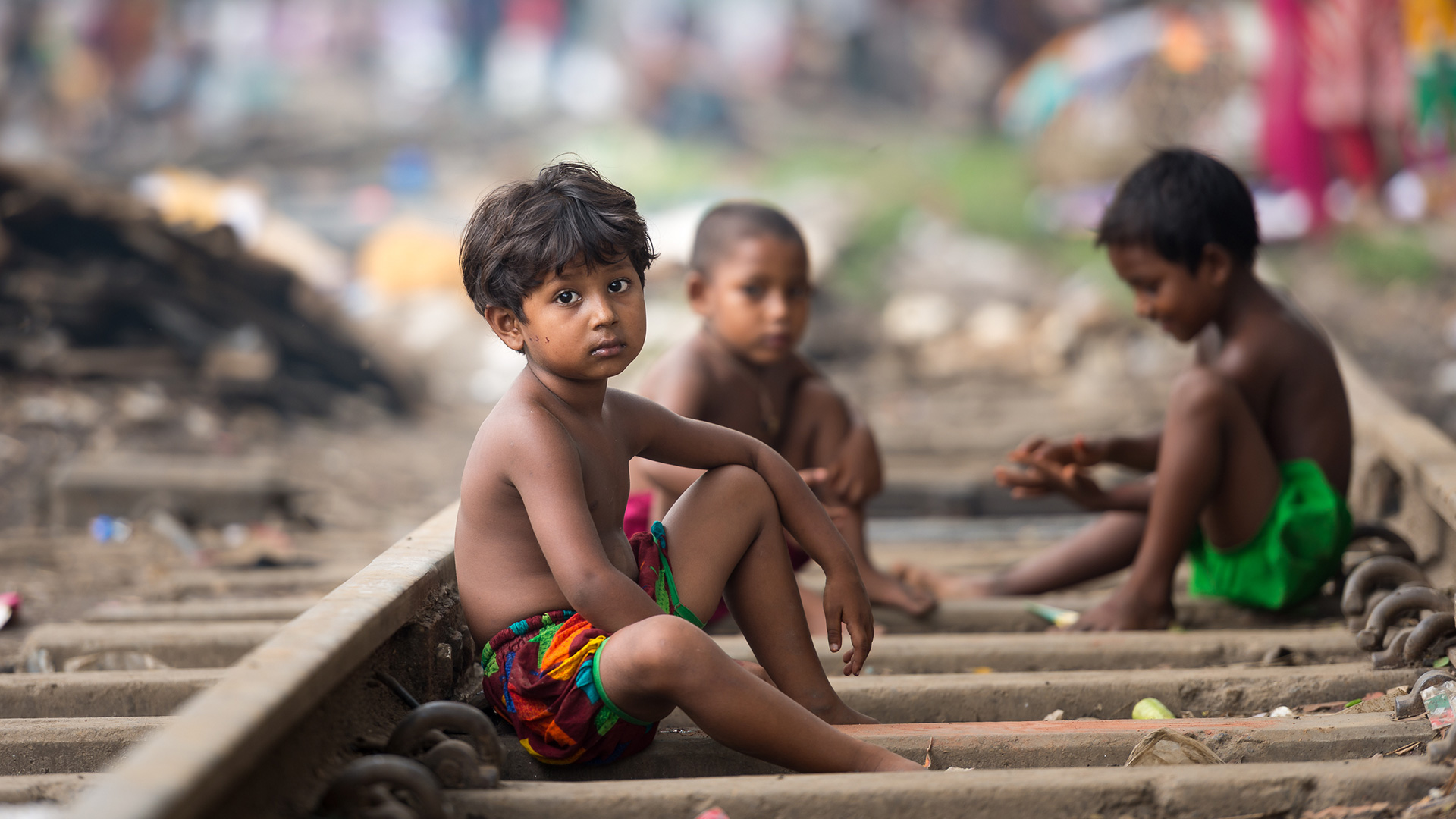
Life in community is always expressed through culture. We often tend to think of culture as art, literature, music, fashion, and cuisine. But culture is embodied in all aspects of the way of life of a community, including work, child rearing, language, and social interactions. This photo gallery explores the culture of families living along the train tracks in Bangladesh. May it open our eyes and inform our prayers for this vulnerable community.
Home along the Railroad Tracks
A constant stream of trains roar through the city of Dhaka, Bangladesh, sending people scattering off the tracks to wait for the danger to pass. The smell of human waste permeates the humid air as children run barefoot through narrow alleys that branch out in all directions from the tracks. Nearby, men huddle around a gas burner attached to a propane tank to watch the pot of tea leaves, milk, and sugar come to a boil. The smell of garlic and onion wafts through the air, reaching a group of teenagers crowded around a smartphone, listening to their favorite songs.
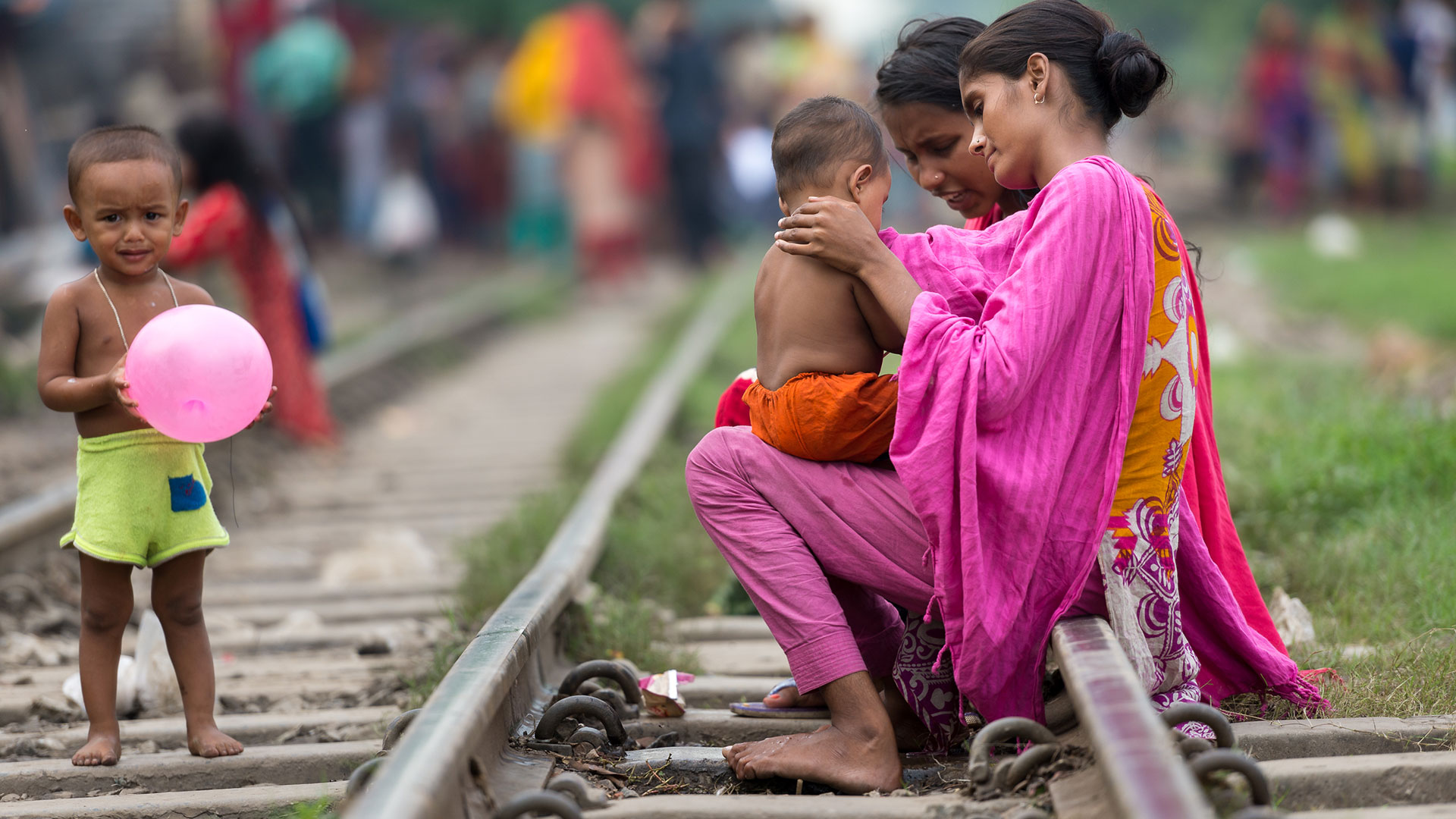 Bangladesh is one of the most densely inhabited countries in the world, with a growing population of nearly 169 million. As in most South Asian megacities, thousands in Dhaka live on the edge of the railroad tracks as people continuously pour in from villages. The need for sustainable income often leads people to leave their homes in hopes of a better life in the city.
Bangladesh is one of the most densely inhabited countries in the world, with a growing population of nearly 169 million. As in most South Asian megacities, thousands in Dhaka live on the edge of the railroad tracks as people continuously pour in from villages. The need for sustainable income often leads people to leave their homes in hopes of a better life in the city.
Where do you plant your family in a city already bulging with a population that outweighs the available infrastructure? For many, a few pieces of tin and tarp precariously assembled along the railway tracks provide a place to call home. Incessant noise and danger are permanent features in residents’ lives as their homes rock to the movement of trains going by while children are held near.
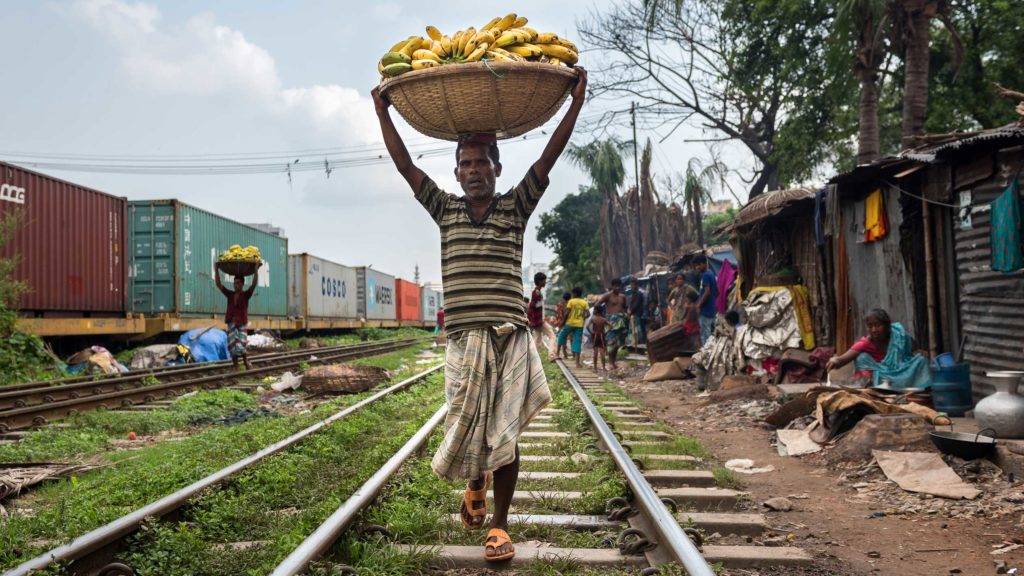 A Community Forged for Survival
A Community Forged for Survival
Those who find a place to shelter their family by the tracks quickly establish a sense of community as a necessary means for survival. Fathers often work long hours as day laborers while mothers may take turns leaving their children with neighbors while they seek part-time employment.
Dhaka residents rely on fresh fruits and vegetables that are brought in daily from the villages. Incoming trains carrying harvested crops from the villages are quickly overtaken by men looking for an opportunity to earn a day’s wage selling produce.
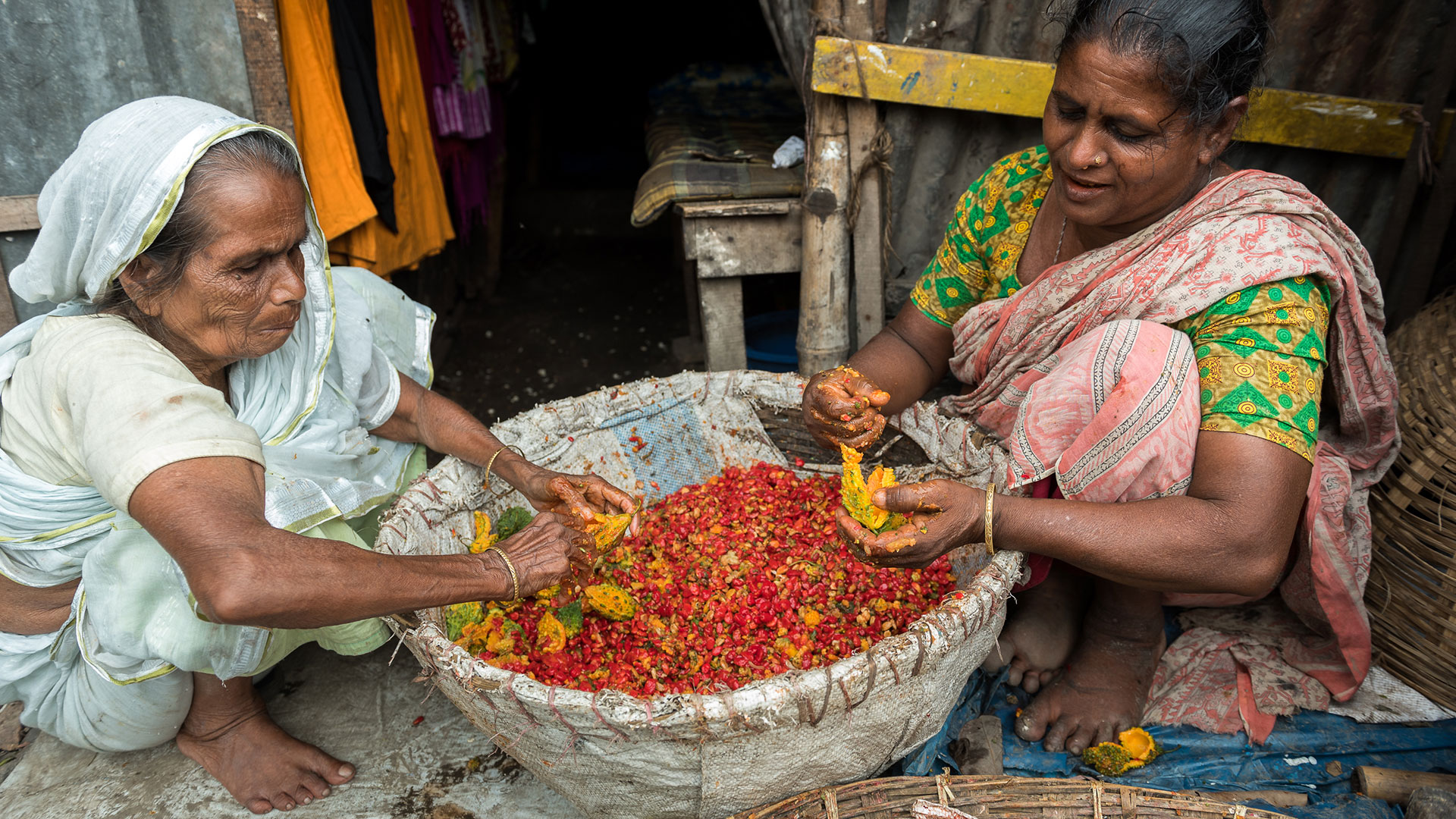 Older women are often anchors in the community, working hard to wisely use every bit of food they have as they prepare meals. Everyone shares their limited resources to make sure there is enough to go around.
Older women are often anchors in the community, working hard to wisely use every bit of food they have as they prepare meals. Everyone shares their limited resources to make sure there is enough to go around.
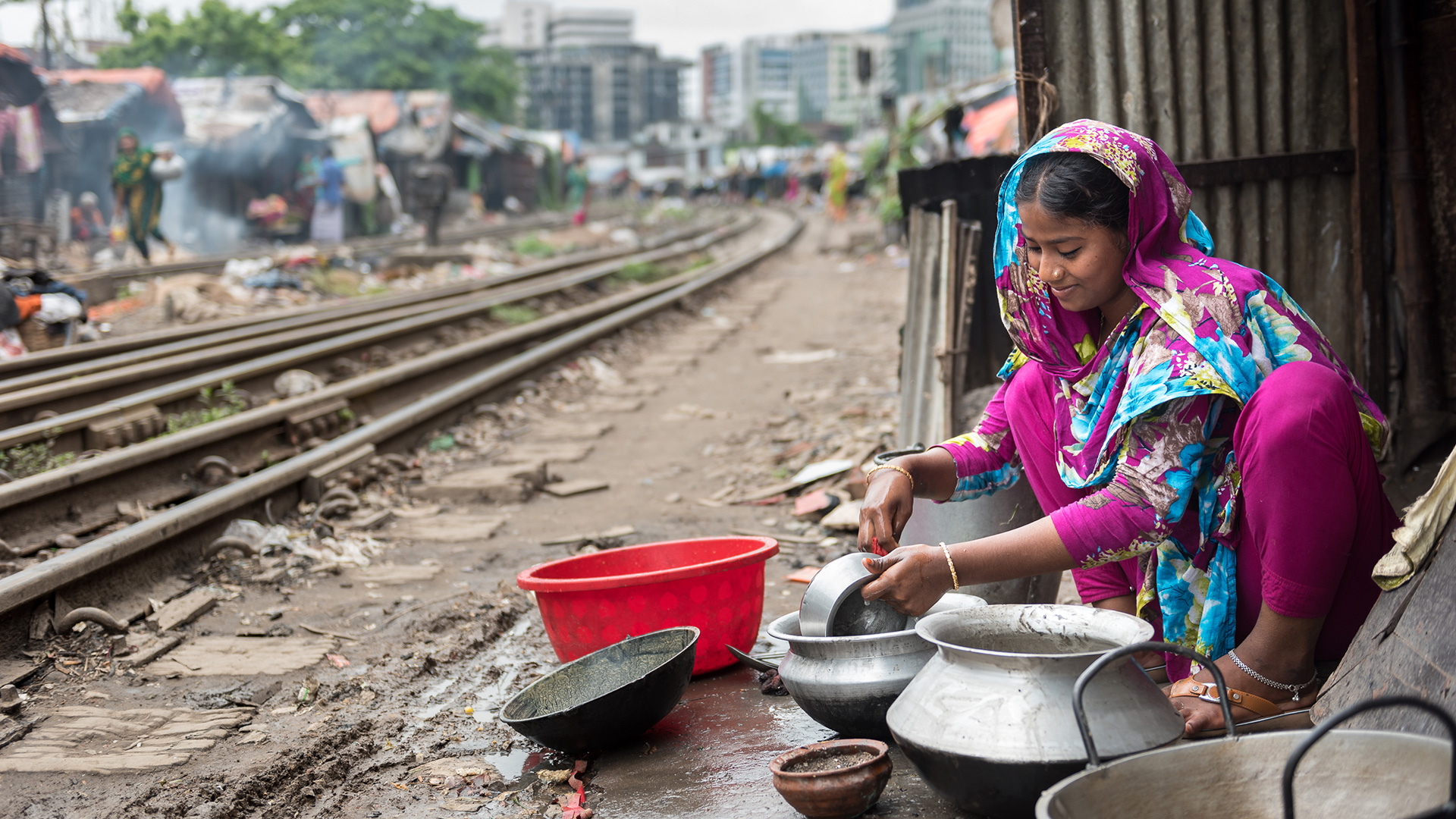 Dishes are carefully washed so as not to waste any of the water carried daily from the communal water pump for the family’s needs.
Dishes are carefully washed so as not to waste any of the water carried daily from the communal water pump for the family’s needs.
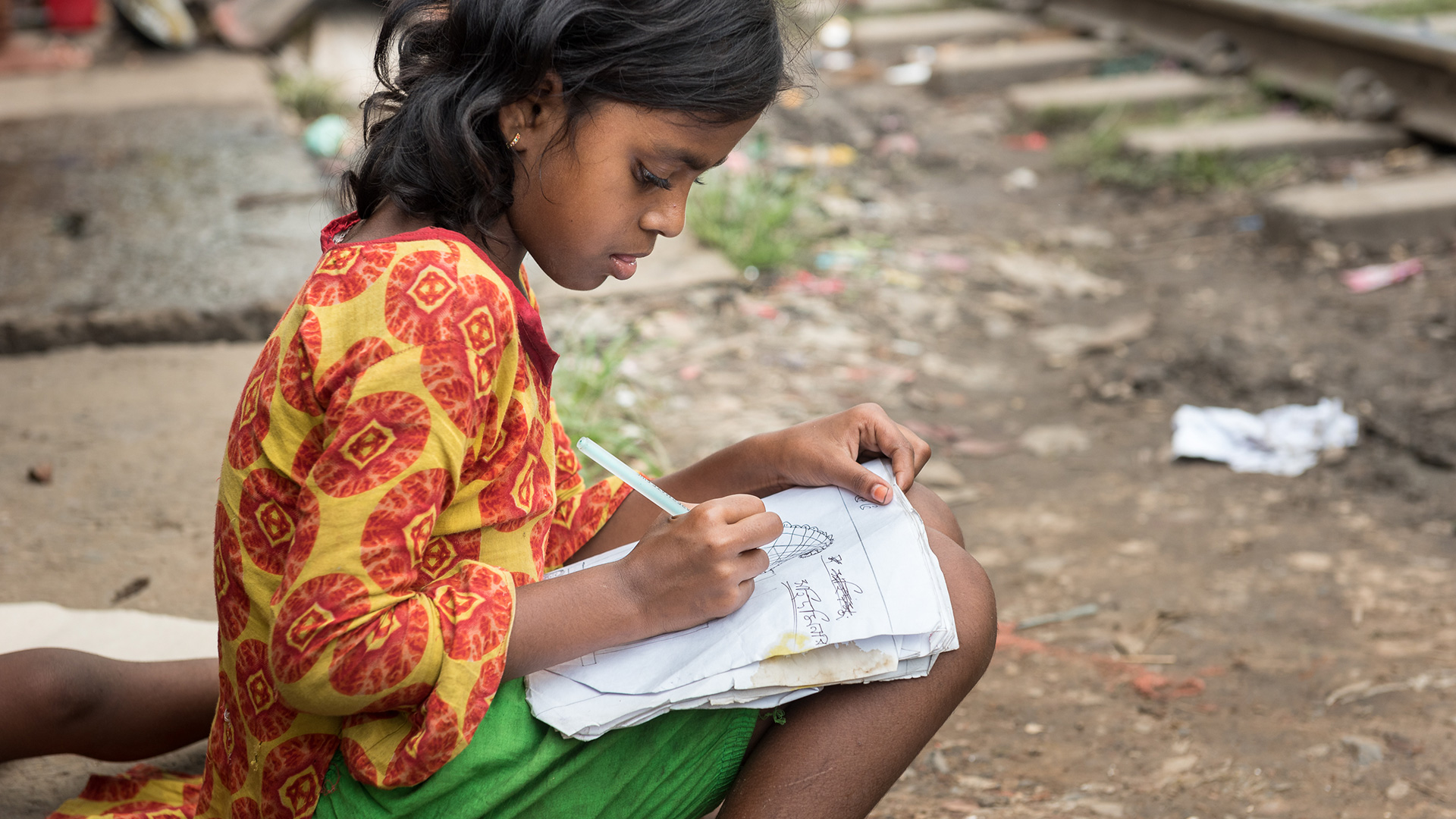 Many families sacrifice for their children to have an opportunity to attend school. The Bengali language and culture are intrinsic pieces of a child’s education. This girl sketches the Shaheed Minar—a structure commemorating those who were killed during demonstrations in 1952 as part of the Bengali Language Movement.
Many families sacrifice for their children to have an opportunity to attend school. The Bengali language and culture are intrinsic pieces of a child’s education. This girl sketches the Shaheed Minar—a structure commemorating those who were killed during demonstrations in 1952 as part of the Bengali Language Movement.
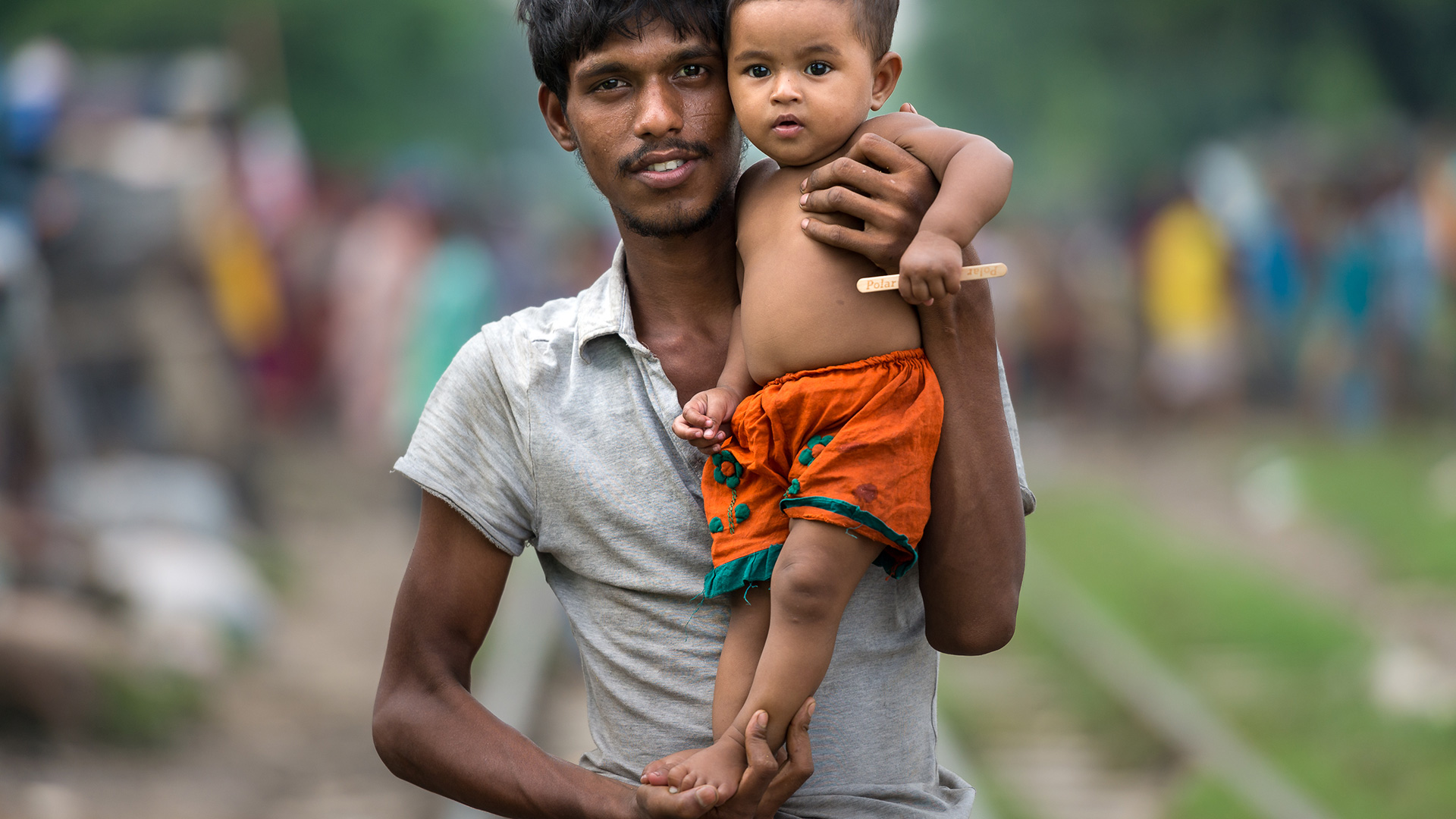 Children spend time sitting on the tracks outside their small, dark, tin homes. There is no other place for them to play, so they make the most of what they have. The simple joys of a child enjoying ice cream on a hot day help relieve some of the endemic stress of day-to-day survival.
Children spend time sitting on the tracks outside their small, dark, tin homes. There is no other place for them to play, so they make the most of what they have. The simple joys of a child enjoying ice cream on a hot day help relieve some of the endemic stress of day-to-day survival.
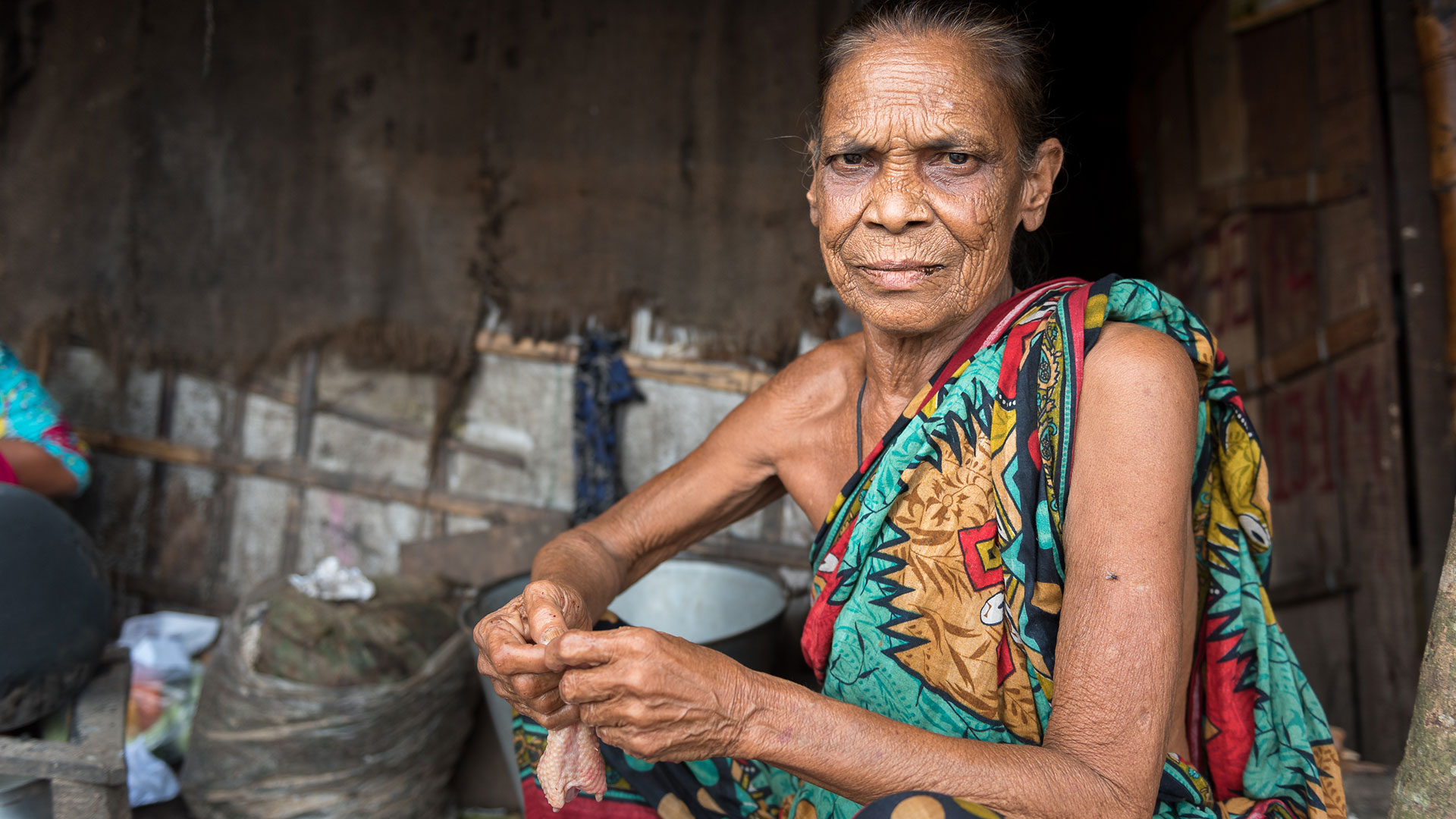 Nearly 32 percent of people in Bangladesh live below the national poverty line, surviving on less than $1.90 a day. Life along the railway tracks is hard, but the community continues to persevere. Victories are celebrated and losses are mourned as the days, like the trains, roll on.
Nearly 32 percent of people in Bangladesh live below the national poverty line, surviving on less than $1.90 a day. Life along the railway tracks is hard, but the community continues to persevere. Victories are celebrated and losses are mourned as the days, like the trains, roll on.
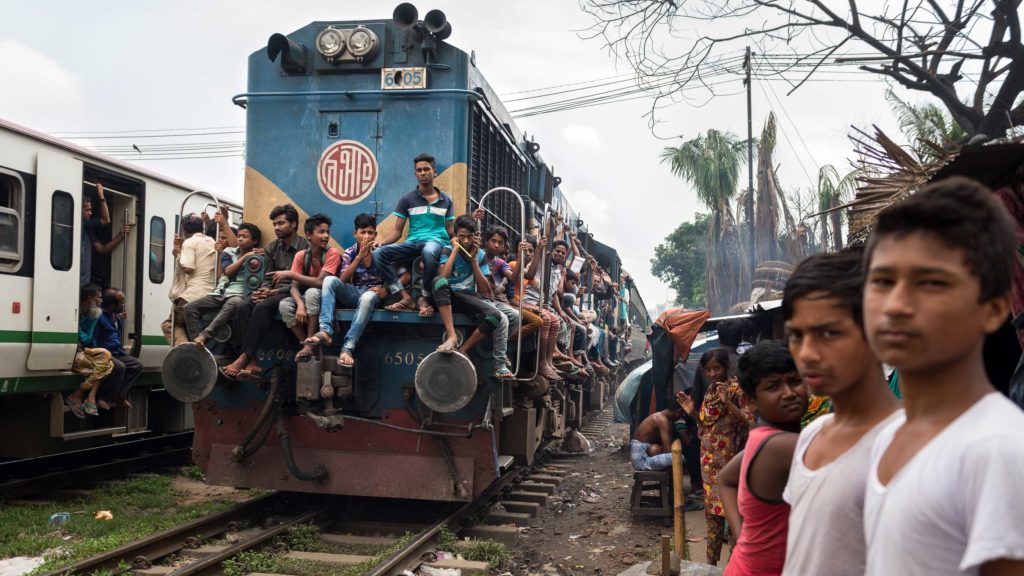 Young and old alike throng to the city, often leaving behind extended family and the watchful eye of religious leaders. As urbanization continues to swell Dhaka’s borders, there is great opportunity for the gospel to spread quickly through these close-knit communities. The good news planted here will spread as new urban believers share the gospel with their families living all across Bangladesh.
Young and old alike throng to the city, often leaving behind extended family and the watchful eye of religious leaders. As urbanization continues to swell Dhaka’s borders, there is great opportunity for the gospel to spread quickly through these close-knit communities. The good news planted here will spread as new urban believers share the gospel with their families living all across Bangladesh.
Pray for the People of Bangladesh
- Pray for the Lord’s mercy to rain down on the communities that call the railroad tracks home. May God bring Bangladeshis out of despair by his saving grace.
- Pray the people of Bangladesh would call upon the name of the Lord and experience the grace, forgiveness, and salvation that Jesus alone can give. Bangladesh ranks as the country with the fourth largest Muslim population in the world. Of the 55 different peoples present in the country, 35 are still unreached with the gospel.
- Bangladesh is not only spiritually starving, but physically starving as well. It has one of the highest malnutrition rates in the world. Fifty-four percent of children under the age of five suffer from stunted growth as a result of malnutrition. Lack of clean water, droughts, floods, and crop failures keep many people undernourished and suffering from disease.
Pray the Lord would bring nourishment to the body and soul of the people of Bangladesh. May he reveal himself to Bangladeshis so they may never hunger and thirst again.
If you feel called to move from prayer to action, consider joining churches across North America in observing Global Hunger Sunday on October 8. Giving towards Global Hunger Relief is a practical way to combat hunger globally, including in South Asia.
All photos were taken by Luke In, a media specialist serving in Asia with the IMB.
Madison Strauder serves in South Asia with her husband and three boisterous boys. Madison enjoys telling the stories of South Asia trusting God will call others to join in the work—pray, give, go!

